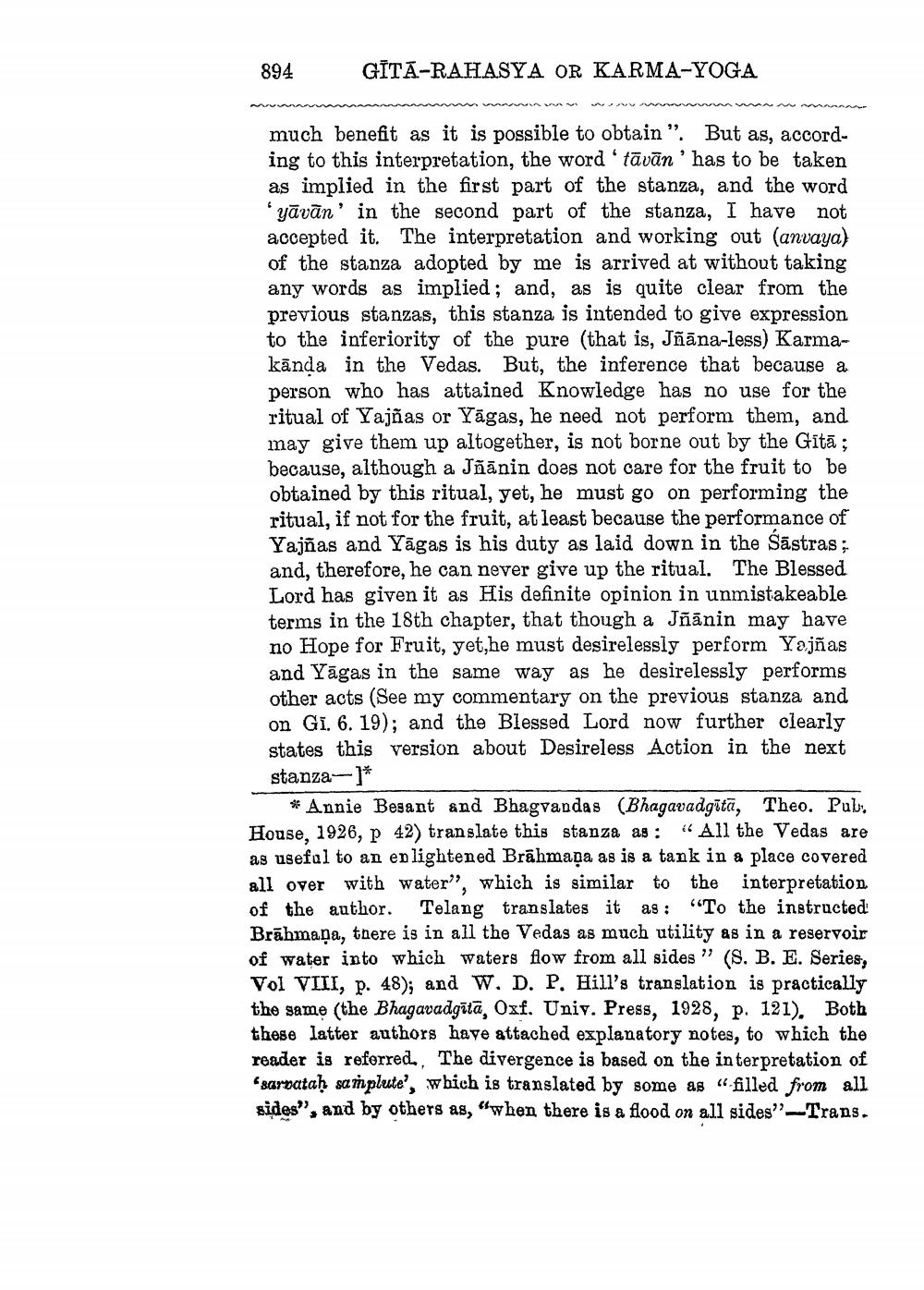________________
894
GĪTĀ-RAHASYA OR KARMA-YOGA
much benefit as it is possible to obtain". But as, according to this interpretation, the word 'tāvān ' has to be taken as implied in the first part of the stanza, and the word 'yāvān' in the second part of the stanza, I have not accepted it. The interpretation and working out (anvaya) of the stanza adopted by me is arrived at without taking any words as implied, and, as is quite clear from the previous stanzas, this stanza is intended to give expression to the inferiority of the pure (that is, Jñāna-less) Karmakānda in the Vedas. But, the inference that because a person who has attained Knowledge has no use for the ritual of Yajñas or Yāgas, he need not perform them, and may give them up altogether, is not borne out by the Gītā; because, although a Jñānin does not care for the fruit to be obtained by this ritual, yet, he must go on performing the ritual, if not for the fruit, at least because the performance of Yajñas and Yāgas is his duty as laid down in the Sāstras; and, therefore, he can never give up the ritual. The Blessed. Lord has given it as His definite opinion in unmistakeable terms in the 18th chapter, that though a Jñānin may have no Hope for Fruit, yet,he must desirelessly perform Yajñas and Yāgas in the same way as he desirelessly performs other acts (See my commentary on the previous stanza and on Gi. 6. 19); and the Blessed Lord now further clearly states this version about Desireless Action in the next stanza-]*
* Annie Besant and Bhagvandas (Bhagavadgita, Theo. Pub. House, 1926, p 42) translate this stanza as: "All the Vedas are as usefal to an enlightened Brāhmaṇa as is a tank in a place covered all over with water”, which is similar to the interpretation of the author. Telang translates it as: “To the instructed Brāhmaṇa, there is in all the Vedas as much utility as in a reservoir of water into which waters flow from all sides" (S. B. E. Series, VoI VIII, p. 48); and W. D. P. Hill's translation is practically the same (the Bhagavadgītā, Oxf. Univ. Press, 1928, p. 121). Both these latter authors have attached explanatory notes, to which the reader is referred. The divergence is based on the interpretation of sarpatah samplute, which is translated by some as "filled from all sides", and by others as, "when there is a flood on all sides"--Trans.




